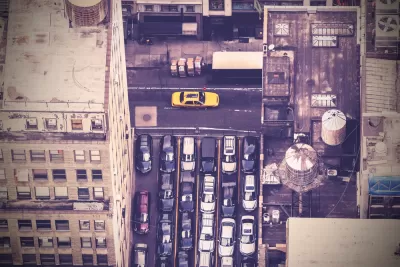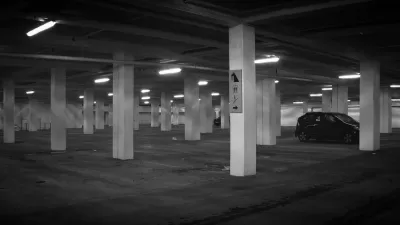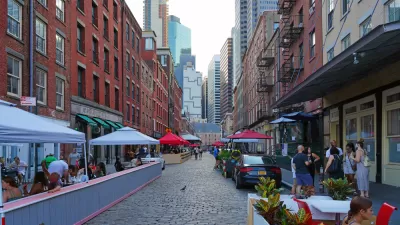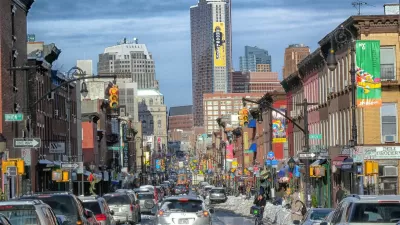With car ownership rates soaring, the fight for the city's free street parking spots is intensifying.

According to an article by Christina Golbaum in The New York Times, New York City's parking woes are reaching a fever pitch as more and more New Yorkers are buying cars and avoiding public transit at the same time as the city has converted 10,000 curbside parking spaces into outdoor dining space during the pandemic. Finding a place to park that newly purchased vehicle has become a formidable—sometimes insurmountable—challenge, according to the car owners quote by Goldbaum.
Car registration in Manhattan rose by 76% between last August and October, signaling a huge growth in the number of vehicles (and necessary parking spots) in the famously dense and crowded city. Residents have taken to blocking off their preferred spots with orange cones and waiting for hours to pounce on available parking as soon as it's cleared by street sweepers. Of the city's close to 3 million street parking spaces, most are free, and New York has never instituted the permit parking systems that many other cities use to control residential street parking. Residents sometimes have to circle for hours to find a spot near their home or pay close to $300 a month for a secured parking space.
Bike and transit advocates don't have much sympathy for the plight of car owners, writes Goldbaum. They claim that the parking scarcity simply underscores the city's "misguided subsidy of car culture" and points to the need to increase other mode shares. Danny Harris, executive director of Transportation Alternatives, dismisses the complaints about lost parking spots. "I’m sorry for your inconvenience but our entire city benefits when you give streets back to people," Harris told Goldbaum.
FULL STORY: Why the Fight Over Parking in New York Is ‘Like the Hunger Games’

Alabama: Trump Terminates Settlements for Black Communities Harmed By Raw Sewage
Trump deemed the landmark civil rights agreement “illegal DEI and environmental justice policy.”

Study: Maui’s Plan to Convert Vacation Rentals to Long-Term Housing Could Cause Nearly $1 Billion Economic Loss
The plan would reduce visitor accommodation by 25% resulting in 1,900 jobs lost.

Why Should We Subsidize Public Transportation?
Many public transit agencies face financial stress due to rising costs, declining fare revenue, and declining subsidies. Transit advocates must provide a strong business case for increasing public transit funding.

Paris Bike Boom Leads to Steep Drop in Air Pollution
The French city’s air quality has improved dramatically in the past 20 years, coinciding with a growth in cycling.

Why Housing Costs More to Build in California Than in Texas
Hard costs like labor and materials combined with ‘soft’ costs such as permitting make building in the San Francisco Bay Area almost three times as costly as in Texas cities.

San Diego County Sees a Rise in Urban Coyotes
San Diego County experiences a rise in urban coyotes, as sightings become prevalent throughout its urban neighbourhoods and surrounding areas.
Urban Design for Planners 1: Software Tools
This six-course series explores essential urban design concepts using open source software and equips planners with the tools they need to participate fully in the urban design process.
Planning for Universal Design
Learn the tools for implementing Universal Design in planning regulations.
Smith Gee Studio
Alamo Area Metropolitan Planning Organization
City of Santa Clarita
Institute for Housing and Urban Development Studies (IHS)
City of Grandview
Harvard GSD Executive Education
Toledo-Lucas County Plan Commissions
Salt Lake City
NYU Wagner Graduate School of Public Service





























